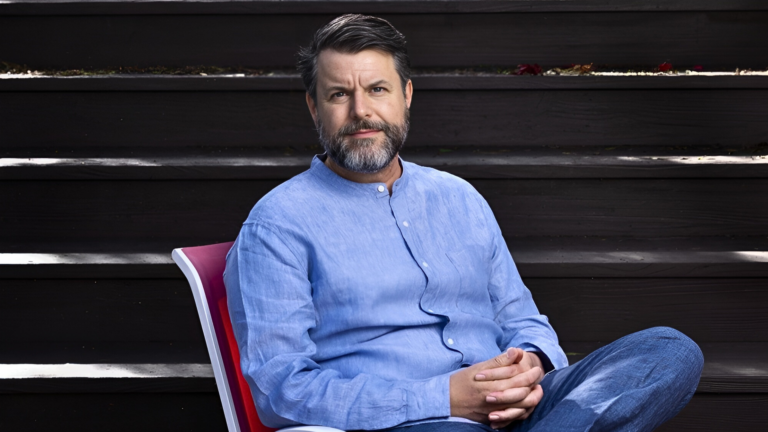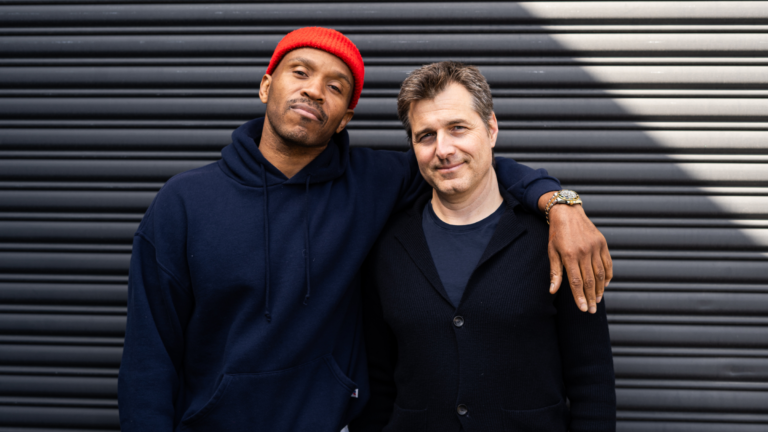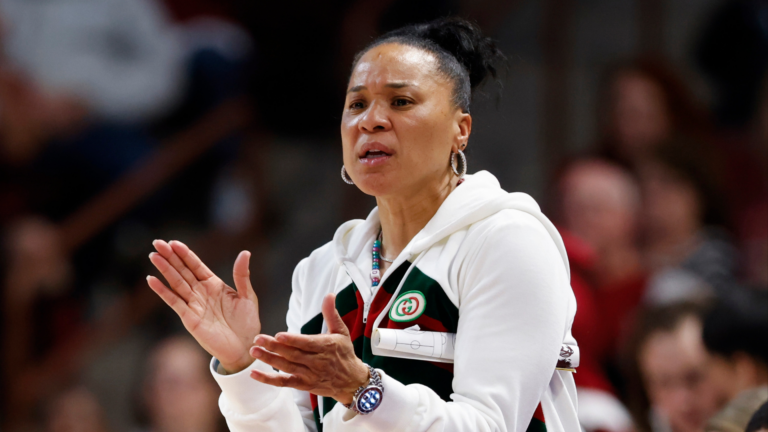This week’s conversation is with Chris Capossela, Microsoft’s chief marketing officer and executive vice president of worldwide consumer business.
As the chief marketing officer, Chris runs marketing across both the consumer and commercial businesses, which includes marketing for all Microsoft services and products, business planning, brand, advertising, events, communications and research.
As leader of the worldwide consumer business, Chris oversees the Consumer Channel Sales and Marketing team, Microsoft Advertising Sales and Microsoft Stores. These teams are responsible for driving revenue, growth and share across the consumer business.
Chris joined Microsoft in 1991 as a marketing manager for the Windows Seminar Team.
In his 30 years at Microsoft, Chris has held a variety of leadership positions and oversaw the creation of new business opportunities and consumer experiences, including the transition of Microsoft Office on-premises products to Office 365.
This conversation is important.
Chris is a model for the modern leader – he empowers his team and leads with empathy.
“The way I lead today is not with me in the forefront, it’s typically giving the stage to other people. The restaurant only works if everybody works together.”
In This Episode:
His Italian-American upbringing
I’m the youngest of three sons. My mom and my dad started this Italian restaurant when they were 19 and 20, very young. We lived in the apartment on the top floor of the apartment building. And my grandparents, my father’s parents, lived right below us, and then the restaurant was on the ground floor. And you come home from the school and you go into the restaurant. You didn’t go up to the apartment. And you had your afterschool snack at the bar. And then you hung out at the restaurant, you did your homework and you went to work, obviously. So the restaurant was the center of the family, and we all worked there, cousins worked there, uncles and aunts worked there. It was very, I guess, classic Italian American, small business upbringing.
Family restaurant values
I’ve had a weird career at Microsoft, where I’ve done tons of different jobs. And I often wonder if my dad and mom’s design of moving us around from the kitchen to the front of the restaurant, et cetera, prepped me for a career of weird multifaceted roles, going from sales to operations to engineering to marketing. So I think it prepared me for a lot of things that I didn’t understand it was preparing me for. And that hard work ethic, growing up in a restaurant it’s a tough, tough business. So I think of that. The way I lead today is typically not with me in the forefront, it’s typically giving the stage to other people. The restaurant only works if everybody works together. There’s a lot of stuff, Michael, that I think I learned in the restaurant without understanding I was learning, that I think instilled in me a good set of values, and a good understanding of it not being about me all the time.
What balance means to him
I’m a balance of weird contradictions. And our work has helped me understand that a big part of me is balance. I try to say, “Okay. Every day I want to try to have the courage to put other people first. And I want to balance things that don’t always go together.” I try to balance inspiration with accountability. I try to balance thoughtfulness with joyfulness, because often I can miss the joy in every day, and I’m a little in my head a lot. And it’s like, no, no, find the joy every day. And I try to balance learning with performing, because a lot of my life has been performing, it’s been: deliver the specials to 15 tables tonight, and close the restaurant and do well in school and get a good job. The pressure to perform, at least I’ve always felt it deeply. And learning, Satya has taught me, is actually more important. So how do I balance my innate desire to perform, this need to feel like I’m performing with, no, what have you actually learned today? So those are some of the things I think of when you say, “Who are you?” And how I try to go to work, show up for my wife, show up for my brothers, et cetera, et cetera. It’s this balance of things that don’t come naturally to me.
How he was introduced to computers and technology
My dad randomly read an article in the Boston Globe when I was 13, that was about this company across the river in Cambridge, called Lotus Corporation. And he read about this thing called Lotus 1-2-3, and thought, “Oh, technology. This is interesting.” The next day he went and bought an IBM PC, plugged it in at the restaurant and said, “Chris, this is your thing that I want you to figure out how to use, and apply… I don’t know the answers. Apply it to the restaurant. And these spreadsheet things, we’re going to buy Lotus 1-2-3, and you’re going to start with that.” And he enrolled me in a database programming class at a local computer reseller in Boston, that of course doesn’t exist anymore. And I started to learn how to program and create databases.
How he deals with imposter syndrome
One of the things I’ve told myself is, “Hey, at this level, the expectations are really high. Lots of people fail. And the company tells them it’s time for them to move on. That might happen to you. In fact, it’s going to happen to you. It will happen to you, because what is the end of anybody’s career, you either choose or the company chooses. So let’s just pretend the company’s choosing and it’s going to happen someday. It might be tomorrow, it might be five years from now.” So can you control that? The only thing I can control is to bring it. The only thing I could do is say, “Well, dammit, I am going to do everything I can while I have the opportunity to use this platform, to be my best, to bring it for the company, to make Satya see that I can kick butt on behalf of what he needs me to do.”
What he learned from writing speeches for Bill Gates
I was 26. He gave 300 speeches a year, over that two and a half year period that I was with him. So I learned a lot about project management. I learned a lot about, what’s a tier one piece of work, where you’re going to put hours and hours. He had maybe five of those a year. And what’s a tier three, where 45 minutes of time gets him an A-, which for most people is like an A+. And understanding how to manage that. But from him specifically, which might be more of what you’re asking, I saw leadership at scale, in ways I’d never seen. He’s running a big, mega company. I saw focus on people. Do we have the right people in every job? In a way that I’d never seen. And I saw crazy curiosity. I mean, the learning capacity of one human being. The books I would carry around for him to read wherever we were, was just mind-blowing. It’s so inspiring.
What does leadership mean to him?
I think it’s aligning the company’s goals with what society needs, with what employees crave. And otherwise they’re going to go somewhere else that is going to satisfy that need in them. So I think of those three dimensions, there’s the company, there’s the broader society and there are the employees themselves. And if you could bring those three things together, that’s leadership.
A modern take on leadership and fulfillment
And I think marrying what’s important to the corporation and how the corporation can better serve the world, and our employees specifically, I think is a real leadership challenge that people can lean into, but may or may not feel like they have the freedom to. And my boss says, “You have to use Microsoft as your platform, to do what matters to you.” I’ve never heard anyone say that before. No one’s ever said that. Like, “What are you talking about? We’re supposed to make the company grow, that’s what we do. We’re a for-profit company, our job is to grow.” And he’s like, “No, no, no. Yes, but you can also use this incredible platform to find fulfillment in your life.” I think that’s quite elevated, I think that’s quite sophisticated. So as I’ve worked on that for the past seven years, he said it seven years ago for the first time, it’s like, “Oh, I think I get it. I think being a leader is that.”
How the hybrid-work model excites him
I think the best thing is that companies have been forced to look at other ways to work. And I think Microsoft has realized we can actually be quite effective with people working in a variety of locations. And we had a huge bias since I’ve been at the company, to everybody being in one spot, and everybody being physically together. The hallway conversations are powerful, the white boarding sessions are powerful, et cetera, et cetera, et cetera. And that’s great for companies of a certain size, but boy, do we miss out on talent if we make everybody move to Redmond, Washington… I actually am most excited that companies are going to have to go through the super painful growing pains of figuring out how to provide flexibility that employees demand now, because there are one Teams call away from flipping to another company without moving their house.
How he holds himself accountable to Microsoft’s mission
Two ways… One way is, how do I treat the people in my life every day? Am I doing things that empower them? Am I using my platform, my power, my privilege to do that? And two is, what systems am I reinventing? What policies am I tearing down and re-crafting, because they were built a while ago and aren’t what we need going forward. So there’s the personal, and we keep coming back to this, right? There’s the personal, how am I today with the 15 people I work with, or whatever the number is? And then there’s the, when you’re gone, what will you have put in place that will serve the company in that way? And that’s the systems and the policies piece.
What playing tennis has taught him
It’s a very lonely sport. There’s no coaching, you’re alone on the court. You have to figure everything out yourself. And it’s a very long, rigorous season. It goes forever. So I think the work ethic and the self-improvement and the mental toughness in that sport is… Maybe there are other sports like it, I don’t know, but it’s so different than a team sport. And I think that mental acuity and rigor was probably the thing I learned the most. And it’s lonely, so you learn how to find yourself through that, almost loneliness.


